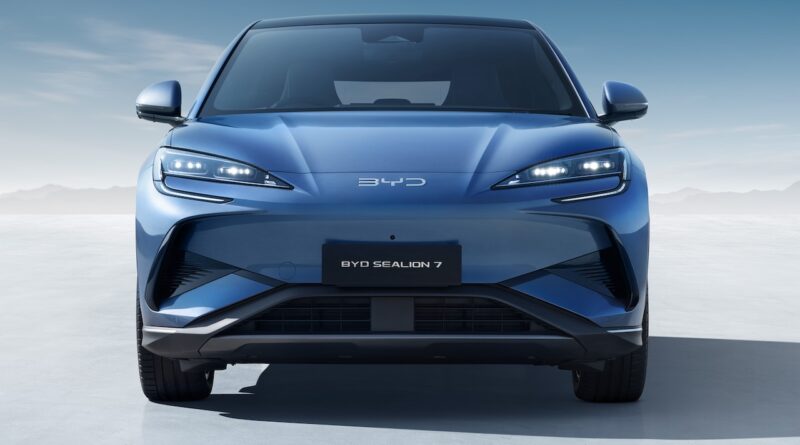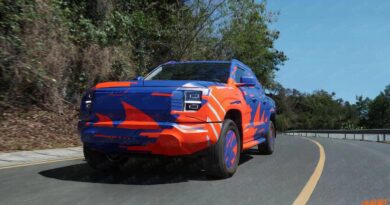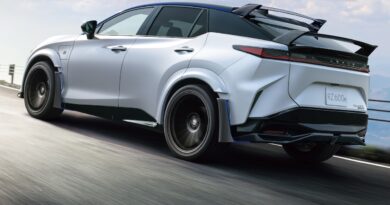Are Chinese electric cars really spyware on wheels? Or is it all tin-hat conspiracy at its finest? | Opinion
Yes, it really does sound like the plot of one of those gosh-awful James Bond films we had to put up with back when it was hard to decide who was worse, Pierce Dalton or Timothy Brosnan, but what if China actually is planning to use software embedded in its many, many EVs to cause planet-wide chaos (and really mess up traffic).
I often face-palm while reading the comments below EV reviews from people who say they refuse to buy Chinese cars because the communists are definitely coming for us, and electric vehicles are just bigger, smarter versions of the malware Huawei was trying to sneak into our 5G networks.
I laugh, just as you probably do, but then recently I read about the actual Chinese espionage hidden inside even more innocent seeming technology – solar panels.
READ MORE: Why the massive influx of Chinese EVs will end in tears | Opinion
READ MORE: Hating on Chinese EVs? You might be a car-racist
READ MORE: 2024 EV sales figures: 77% were made in China
According to the believable source that is Reuters, “kill switches” that could allow Beijing to shut down power grids and cause blackouts have been found in equipment at US solar farms. And, other than in a case of an actual war with the western world, you have to wonder why they’d be doing that.
Indeed, this led me to look again at the reasoning behind America’s recent decision to ban the importation of all Chinese-made cars due to fears they could be used for surveillance, or even “deliberately crashed” (no, this wasn’t a Trump thing, the call was made by the Biden administration, hopefully while he was awake).
The Chinese spyware, including cellular radios, were found in Chinese-made power inverters used to connect solar panels and wind turbines to electricity grids around the world, and could be deployed remotely to mess with power grids, causing catastrophic results, and perhaps easing the way of an invading force.
“That effectively means there is a built-in way to physically destroy the grid,” a source told Reuters.
Worse still, it seems the Chinese raptors are already testing the fences. In an incident in November last year, Reuters reports, multiple solar inverters in the US were remotely disabled from China.
The number of inverters hit and the damage caused remains unclear, but the incident underscored the risk to western electricity networks. Hmm, now which country is it that has the most solar panels in the world?
Mike Rogers, a former director of the US National Security Agency, explained: “We know that China believes there is value in placing at least some elements of our core infrastructure at risk of destruction or disruption.
“I think that the Chinese are, in part, hoping that the widespread use of inverters limits the options that the West has to deal with the security issue,” Rogers added.
Over the past year, suspect devices have been found in inverters, and batteries, supplied by multiple Chinese suppliers.
It’s important to remember that Chinese companies – including car makers – are required by Chinese law to co-operate with the country’s intelligence agencies.
So, is it possible that Chinese cars could be used as agents of chaos? Last year, then US Commerce Secretary Gina Raimondo cited national security concerns when calling for a ban on key Chinese software and hardware in connected vehicles. The software bans will take effect in the 2027 model year and those on hardware in 2029 (if President Trump doesn’t pull a TikTok-like delaying move on banning something Chinese).
“It’s really important because we don’t want two million Chinese cars on the road and then realise … we have a threat,” Raimondo said.
It’s interesting to note that the bans also stop Chinese car companies from testing self-driving cars on roads in the US, and also covers Russian vehicles and components.
So what’s the situation down under? Well, the Motor Trades Association of Australia predicts that Chinese cars will dominate our roads in the near future.
“I could easily see it being the number one source market,” an MTA spokesman said.
“Three years ago, it was three per cent of vehicles. By 2023, nearly 16 per cent of all vehicles were coming from China, the number three source.”
Fortunately the Federal Government is keeping an eye on things, so you don’t have to.
“The government is closely monitoring the developments in the US on this matter, and the Department of Home Affairs has been proactively engaging with the US government to understand the implications of any proposed regulation,” a spokesperson for the Home Affairs department said.
Now look, I’m not saying we should be worried, or that you shouldn’t buy a Chinese car, I’m just say I never took this seriously, but now I’m thinking it’s quite interesting. Consider this a public service announcement.





Tin hats are everywhere. Do not despair. Love your work
Complete lack of any scientific evidence here,or research studies,Tesla can do remote activities on their cars to a degree, are they a danger?